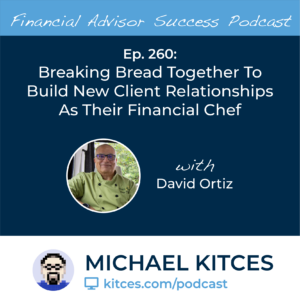
Enjoy the current installment of “Weekend Reading For Financial Planners” - this week’s edition kicks off with the news that the SEC is considering updating several of its regulations regarding cybersecurity to address modern threats and vulnerabilities, which for SEC-registered investment advisors, could lead to increased preparedness and reporting requirements (though it remains to be seen whether any new rule would constitute a more clear and comprehensive policy than the current patchwork of cybersecurity regulations that RIAs must follow).
Also in industry news this week:
- The SEC has started sending deficiency letters to broker-dealers who fail to comply with Reg BI’s requirements to assess and document rollovers to ensure they are in clients’ best interests – which portends even greater issues with the DOL set to enforce its own rollover rules starting February 1
- The Public Investors Advocate Bar Association (PIABA) is lobbying the SEC to prohibit forced arbitration clauses in RIA advisory contracts and require firms to cover more of the costs of arbitration (which currently can run upwards of $30,000 for clients just to start the arbitration process)
From there, we have several articles on Medicare strategies:
- How advisors can help their clients select the best Medicare agent
- Why it is important for clients to look past the premiums and consider the total potential costs when selecting Medicare plans
- How Medicare’s general enrollment period, which runs through March, is an opportunity for eligible clients to sign up for Medicare if they missed their initial enrollment period (but still comes with late enrollment penalties)
We also have a number of articles on advisor-client communication:
- A new study assessing the role of qualitative data gathering in developing client trust and commitment shows that most planners overestimate how much effort they’re really putting in to learn about their clients (at least when compared to their clients’ perception of those efforts)
- Why financial advisors often cost themselves business by focusing more on themselves and their expertise in conversations with prospects, when in reality most prospects are more interested in what the advisor can do to make them feel important
- Why the phrase “financial planning” itself can cause resistance to financial planning conversations by conjuring unpleasant feelings about change, aging, and death; while reframing those conversations around “investing” (e.g., in oneself for the future) can make clients feel more positive about planning and saving
We wrap up with three final articles, all about self-improvement:
- How you can more effectively ask for feedback
- How we can combine seemingly unremarkable skills to produce extraordinary outcomes
- Why creating a ‘personal monopoly’ of leveraging your best personal properties is a better option than trying to win the ‘metagame’ by chasing the latest advisory industry trend
Enjoy the ‘light’ reading!



 Welcome back to the 264th episode of the Financial Advisor Success Podcast!
Welcome back to the 264th episode of the Financial Advisor Success Podcast!

 Welcome back to the 262nd episode of the
Welcome back to the 262nd episode of the 

 Welcome back to the 261st episode of the Financial Advisor Success Podcast!
Welcome back to the 261st episode of the Financial Advisor Success Podcast!
 Welcome back to the 260th episode of the Financial Advisor Success Podcast!
Welcome back to the 260th episode of the Financial Advisor Success Podcast!
